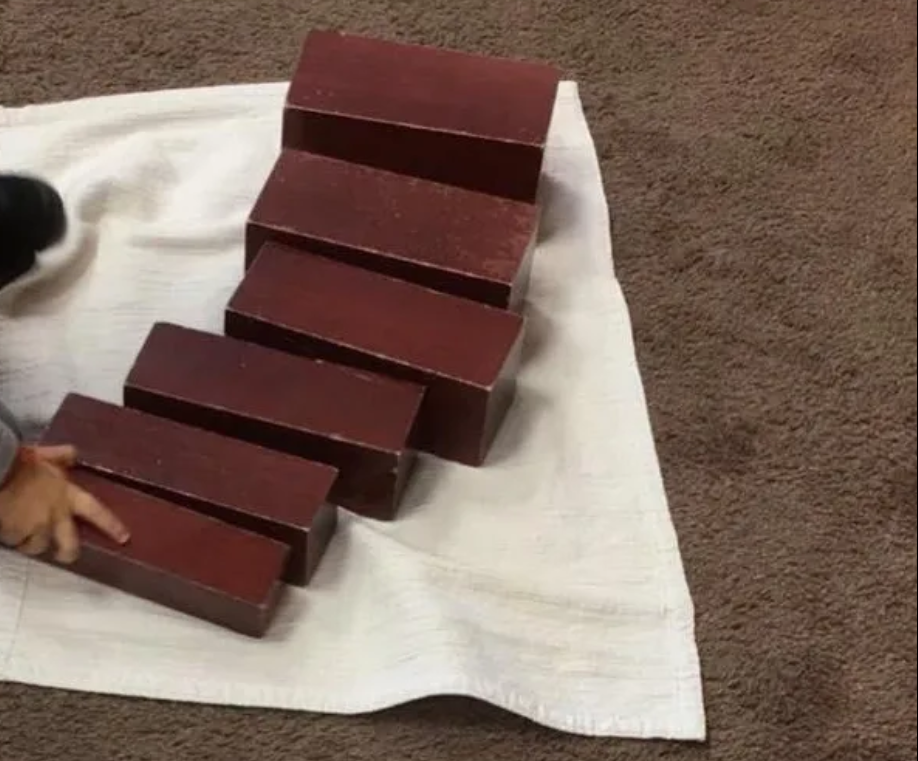SENSORIAL
Dr. Montessori saw the senses as the “doorway to the mind.” She considered sensory and manipulation not only an aid to the development of maturing sense organs (eyes, ears, nose, tongue and skin), but a starting point for the intellectual growth.

She believed that by helping children to order, compare and classify sensory stimulation, their intellectual development would be greatly assisted and future learning would be more meaningful and useful. The basic sensorial exercise inspires careful observation and calls attention to specific qualities requiring identification of similarities and contrasts. The mind must judge, compare, classify and draw conclusions. These exercises tend to fascinate children because they are difficult enough to represent a real and meaningful challenge. They are then better prepared for future learning in math, language, and science and making sense of life’s experiences and information in general.
